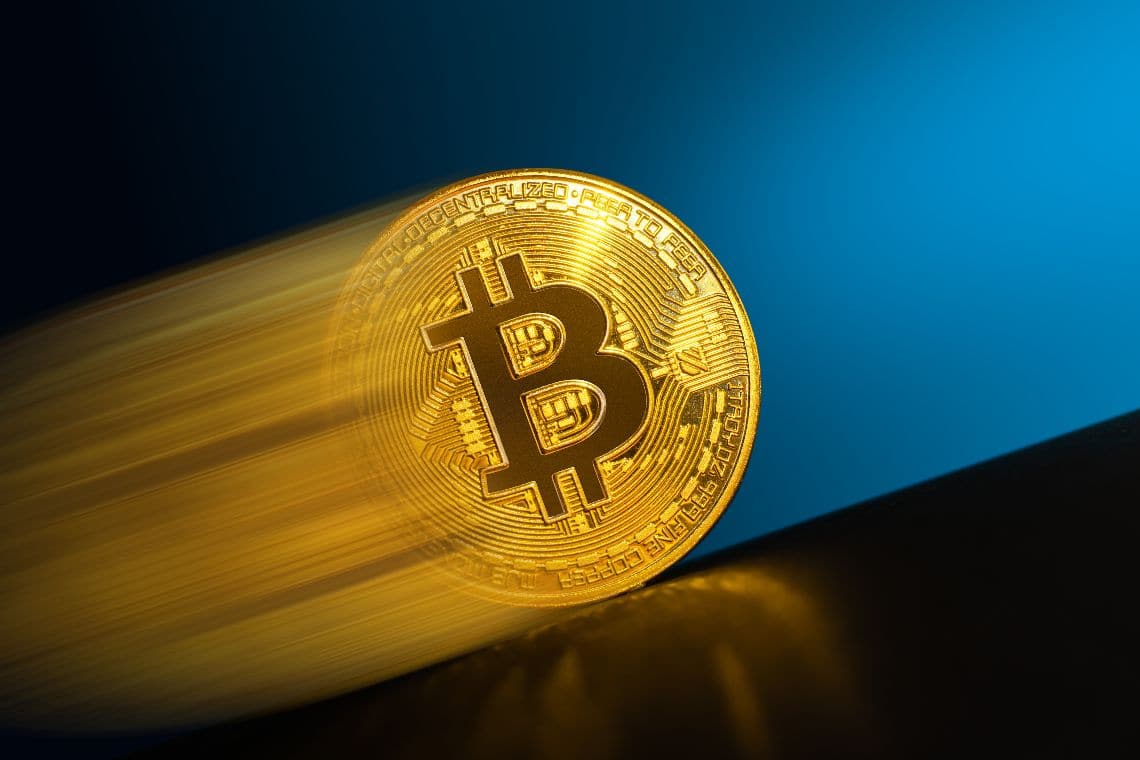Bitcoin’s Lightning Network, a peer to peer network of nodes that work together to make transactions easier and cheaper, has seen a boom in transactions in recent days.
Lightning Network transactions cost lower
The data showed that there are currently 24,856 active nodes and 65,311 channels operating on the network, with an estimated $108 million worth of bitcoin being processed through the network, almost double the $76.1 million last month.
According to many observers, this growth is surely due in part to El Salvador’s decision to adopt bitcoin as legal tender in the country.
Measuring the transaction speed of cryptocurrencies is an important factor, especially when it comes to the fees that are paid for each one.
The more congested the network and the slower the transactions are, the higher the cost will be, making everyday use almost impossible.
Thanks to LN, the average fees have dropped below the base rate, which would be about 1 sat (a satoshi is the smallest unit of Bitcoin), the average fee that is charged would be only 0.000006 SAT/SAT.

The cryptocurrencies that have the fastest transaction speeds
Ripple
It is a cryptocurrency founded in 2012 by Ripple Labs Inc. It immediately attracted the attention of investors and investment companies, due to its feature of facilitating peer-to-peer payments and quickly becoming one of the top ten cryptocurrencies. In December 2020, the SEC opened an investigation into the company for irregular sales of securities.
It is one of the fastest blockchains with 1500 transactions per second.
EOS
Open-source platform to create a digital infrastructure through smart contracts. One of its goals would be to replace Ethereum in some functions, thanks to faster transactions and a much lower cost of fees. EOS can process around 2,800 transactions per second with an average confirmation time of 0.5 seconds.
STEEM
Founded in July 2016, Steemit is one of the first and most popular blockchain-based social networks that rewards users with their own Steem cryptocurrency for the content they post and the interactions they have within the social network. It can process around 10,000 transactions per second.
NEO
Open source blockchain-based platform founded in 2014 in China by HongFei and Erik Zhang. After various vicissitudes that saw the name change in 2017 to the current Neo, from the Greek word for novelty, it is considered by many to be the Chinese version of the more famous Ethereum, because it also offers the possibility of carrying out certain transactions via smart contracts. NEO can process 1000 transactions per second with an average confirmation time of 15 seconds.
Solana
Solana was founded in 2017 and is a platform that is considered to be one of the most scalable and fastest transacting cryptocurrencies, using Proof of Stake and Proof of History (historical event log) protocols. It is one of the fastest-growing cryptocurrencies in the past year. The system currently supports 50,000 TPS (transactions per second).
Are fees for cryptocurrency transactions still too high?
The speed of transactions solves many problems, but above all it makes transactions less expensive, and for some cryptocurrencies such as Ethereum this is still one of the problems that is holding back mass adoption.
The topic has always been a topic of discussion in the crypto community, who still complain about the high cost of fees, which are basically of three types.
How to manage transaction costs
The first fee is the one paid for transactions on the blockchain network, which is the remuneration for cryptocurrency miners for their work, which is a part of the total remuneration that is provided for this type of activity that is fundamental to the creation of new units of a cryptocurrency.
There is also a fee that has to be paid to the exchange, through which cryptocurrencies are bought or sold on the market, and it varies from one exchange to another.
There is also a final fee that is paid when opening a wallet to deposit cryptocurrencies.
The average transaction fee is $0.15 to $0.25 per transaction. Some cryptocurrencies such as Ethereum Classic, Doge, Bitcoin SV, Dash and Litecoin have much lower fees. There is even one cryptocurrency, Nano, that has no fees at all.
When it comes to exchanges, the range goes from $0.1 to the $0.9 that is charged for each transaction on Coinbase or Gemini.
These costs are still considered too high by many operators, and this is one of the reasons why there is a real boom in decentralized exchanges, which have lower transaction costs than traditional exchanges.




